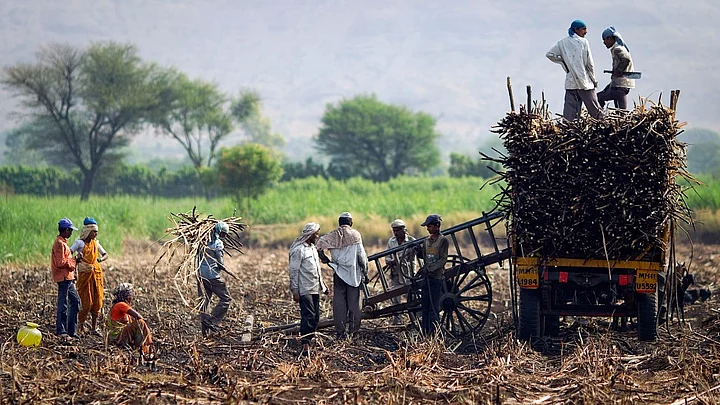Farmer loans comprise over 15 percent of the loan portfolios of public sector banks Canara Bank, Central Bank of India, Dena Bank, Allahabad Bank and Punjab National Bank, putting them at maximum risk from farm loan waivers.
In absolute terms, India’s largest lender State Bank of India has the highest exposure to agriculture at Rs 125,100 crore, or 8.4 percent of its loan book, as of December 31, 2016.
The newly elected bjp government in Uttar Pradesh announced a Rs 36,359-crore farm loan waiver, fulfilling an election promise
Around 1.5 crore small and marginal farmers in the country’s most populous state will be eligible for the waiver, which it plans to finance by issuing Kisan Rahat Bonds.
While government-owned banks may not be directly impacted as the state will bear the burden, there is a risk of other states announcing similar waivers or measures, impacting credit discipline among farmers amid growing bad loans in India’s banking sector.
Banks’ Farm Loan Exposure
Scheduled commercial banks in India together had an outstanding farm credit of Rs 86,241.20 crore in UP with an average ticket size of Rs 1.34 lakh, as of 2016, wire agency PTI reported quoting an SBI Research report.
Credit to agriculture and allied activities stood at Rs 9.33 lakh crore, or 13.8 percent of the gross bank credit of scheduled commercial banks, as of February 2017.
‘Contagion’ Fears
The Madras High Court directed the Tamil Nadu government to waive all farm loans. Maharashtra too has seen the ruling BJP’s alliance partner Shiv Sena and the opposition demanding a farm loan waiver. The state government, which announced welfare schemes for farmers, said that it is studying the UP model. Punjab Chief Minister Amarinder Singh too has pitched for a loan waiver for farmers in the state.
Uttar Pradesh, Tamil Nadu and Maharashtra together accounted for 32 percent of the country’s agri loan portfolio as of September 2016, according to a report by Motilal Oswal.
Credit Culture
Another risk is a fall in credit discipline as waivers can lead farmers to default in the hope of more such waivers. And despite a weaker credit history, banks need to continue to lend to these borrowers to meet the Reserve Bank of India’s priority sector lending requirements.
The previous large farm loan waiver announced by the UPA government in 2008 had led to a sharp de-rating of public sector banks. In a note to clients, Suresh Ganapathy, analyst, Macquarie, wrote:
If more such waivers are announced by several other state governments, we don’t rule out a de-rating of PSU banks even this time.
This article was originally published on BloombergQuint.
Join The Quint on WhatsApp. Type “JOIN” and send to 9910181818.
(At The Quint, we question everything. Play an active role in shaping our journalism by becoming a member today.)
